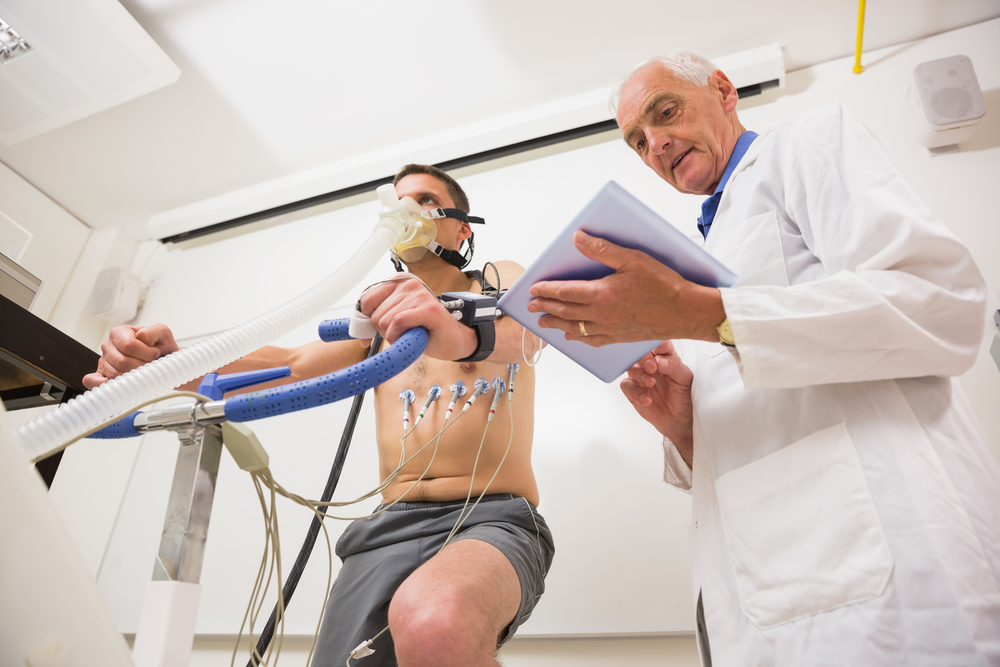Aerobic and Other Exercise Training Should Be Standard of Care for IPF, Review Argues
Written by |

Exercise training is of clear benefit to people with idiopathic pulmonary fibrosis (IPF), and should be part of a supervised program for them, a review study advises. The article, published in the journal Breathe and titled, “Exercise training in idiopathic pulmonary fibrosis: is it of benefit?“, details the evidence supporting these benefits and discusses the possible underlying physiological mechanisms exercise has in this disease.
Dr. Baruch Vainshelboim of the Pulmonary Institute, Rabin Medical Center, Beilinson Hospital in Petach Tikva, Israel, and the article’s author, covers areas such as why exercise training in IPF is important, at which stage of the disease and where the training should take place, and what kind of exercise would be most beneficial for IPF patients.
Below are Dr.Vainshelboim’s main points.
Why should exercise training be done?
Many studies have demonstrated that supervised exercise training provides short-term clinical improvements in IPF patients. These improvements seem to help patients better cope with everyday activities and improve their quality of life. Also, long-term effective treatment, apart from lung transplantation, is still limited for most of these patients. However, studies addressing the long-term benefits of exercise training have been limited, and further research is needed.
When in the disease progression would exercise be most beneficial?
Although research in this area is limited, some studies show that exercise seems to provide a bigger benefit when done in the mid-stages of the disease than in more severe advanced stages. However, some data are conflicting and future studies are needed to establish the best time in the disease’s course for exercise training.
Where should the exercise be done?
In studies assessing the effects of exercise training in IPF, some were supervised and conducted as part of outpatient programs while others were home-based. Although it is not possible to directly compare the benefits of training done at different locations, higher levels of improvement were seen when the training was supervised at least partly, due to the fact that a much lower number of people complete programs done at the home. Moreover, because the signs and symptoms of IPF may worsen during exercise, it seems more appropriate that exercise training is done in a clinic.
What kind of exercise is most beneficial for IPF?
The vast majority of studies here combined aerobic exercise (walking or cycling, or both) with resistance and flexibility exercises. Some also included respiratory muscle training or breathing exercises. All studies reported benefits, but the level of improvement reported has been inconsistent. This could be due to the fact that different measures have been used across studies. In general, a comprehensive exercise training program should at least include: aerobic, resistance, and flexibility components. Breathing and balance exercises can also be valuable for general health. Future studies should assess different training programs to identify the best one for IPF.
Potential mechanism of how exercise training offers a benefit in IPF
It is thought that exercise training can enhance cardiovascular, pulmonary, and musculoskeletal physiology in IPF patients much as in healthy individuals. This in turn can increase exercise capacity, which gets lower as the disease progresses, and potentially reverse the negative effects of IPF on quality of life and general health status. The increase in exercise capacity induced by training can also offer health benefits by easing disease symptoms.
In summary, exercise training seems to be safe and beneficial for IPF patients. In particular, short-term exercise training has been shown to improve exercise capacity, shortness of breath, and quality of life. Further studies are needed to describe the underlying mechanisms of training adaptation and the optimal training program for this patient population. But, he concluded, “The current exercise training data in IPF provide sufficient evidence of clinical benefit for consideration to be given to recommending exercise-based pulmonary rehabilitation as standard of care for IPF.”





